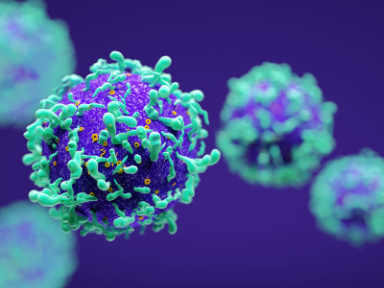fda.govAugust 05, 2021
Tag: FDA , COVID-19 , REGEN-COV
The U.S. Food and Drug Administration today revised the emergency use authorization (EUA) for REGEN-COV (casirivimab and imdevimab, administered together) authorizing REGEN-COV for emergency use as post-exposure prophylaxis (prevention) for COVID-19 in adults and pediatric individuals (12 years of age and older weighing at least 40 kg) who are at high risk for progression to severe COVID-19, including hospitalization or death. REGEN-COV is not authorized for pre-exposure prophylaxis to prevent COVID-19 before being exposed to the SARS-CoV-2 virus -- only after exposure to the virus.
REGEN-COV also remains authorized for the treatment of mild-to-moderate COVID-19 in adults and pediatric patients (12 years of age and older weighing at least 40 kg) with positive results of direct SARS-CoV-2 viral testing, and who are at high risk for progression to severe COVID-19, including hospitalization or death.
Prophylaxis with REGEN-COV is not a substitute for vaccination against COVID-19. FDA has authorized three vaccines to prevent COVID-19 and serious clinical outcomes caused by COVID-19, including hospitalization and death. FDA urges you to get vaccinated, if you are eligible. Learn more about FDA-authorized COVID-19 vaccines.
not fully vaccinated or who are not expected to mount an adequate immune response to complete SARS-CoV-2 vaccination (for example, people with immunocompromising conditions, including those taking immunosuppressive medications), and
have been exposed to an individual infected with SARS-CoV-2 consistent with close contact criteria per Centers for Disease Control and Prevention (CDC), or
who are at high risk of exposure to an individual infected with SARS-CoV-2 because of occurrence of SARS-CoV-2 infection in other individuals in the same institutional setting (for example, nursing homes or prisons)

In general, people are considered fully vaccinated two weeks after their second dose in a two-dose series (the Pfizer or Moderna vaccines) or two weeks after a single-dose vaccine (the Janssen vaccine).
The CDC defines close contact as someone who has been within six feet of an infected person (laboratory-confirmed or a clinically compatible illness) for a cumulative total of 15 minutes or more over a 24-hour period.
People should talk to their health care provider about whether the use of REGEN-COV for post-exposure prophylaxis is appropriate for them.
The primary data supporting the EUA reissuance for post-exposure prophylaxis of COVID-19 are from a Phase 3 trial. The trial was a randomized, double-blind, placebo-controlled clinical trial studying a single dose of REGEN-COV for prevention of COVID-19 in household contacts of individuals infected with SARS-CoV-2. Cases were confirmed using real-time reverse transcription–polymerase chain reaction (RT-PCR), one of the most accurate laboratory methods for detecting, tracking, and studying COVID-19. An 81% reduction in confirmed symptomatic COVID-19 cases was observed with REGEN-COV compared to placebo at day 29 in cases who were RT-PCR negative and seronegative at baseline (the primary analysis population). In the overall trial population, there was a 62% reduction in RT-PCR confirmed symptomatic COVID-19 cases in the REGEN-COV group compared to placebo at day 29.
The most common side effects were injection site reactions. The signs and symptoms of injection site reactions which occurred in at least 1% of subjects in the REGEN-COV group were skin redness (erythema), an uncomfortable, irritating sensation that creates an urge to scratch (pruritus), and ecchymosis (discoloration of the skin resulting from bleeding underneath, caused by bruising). There were no cases of severe hypersensitivity reactions, or potentially life-threatening allergic reactions (such as anaphylaxis).
People who had a previous severe allergic reaction to REGEN-COV should not use it again. Other important information for these trials including other outcomes and side effect information is available in the health care provider fact sheet.
REGEN-COV consists of the monoclonal antibodies casirivimab and imdevimab, administered together. Monoclonal antibodies are laboratory-made proteins that mimic the immune system’s ability to fight off harmful pathogens, such as viruses like SARS-CoV-2.
The authorized dose for REGEN-COV for both treatment and as post-exposure prophylaxis is 600 mg of casirivimab and 600 mg of imdevimab administered together.
For treatment, intravenous infusion is strongly recommended; subcutaneous (under the skin) injection is authorized as an alternative route of administration when intravenous infusion is not feasible and would lead to delay in treatment.
For post-exposure prophylaxis, either intravenous infusion or subcutaneous injection is appropriate. For individuals who remain at high risk of exposure to another individual with SARS-CoV-2 for longer than 4 weeks, and who are not expected to mount an adequate immune response to full SARS-CoV-2 vaccination, following an initial dose of 600 mg of casirivimab and 600 mg of imdevimab, repeat doses of 300 mg of casirivimab and 300 mg of imdevimab once every 4 weeks are appropriate for the duration of ongoing exposure.


Contact Us
Tel: (+86) 400 610 1188
WhatsApp/Telegram/Wechat: +86 13621645194
Follow Us:




 Pharma Sources Insight January 2025
Pharma Sources Insight January 2025


